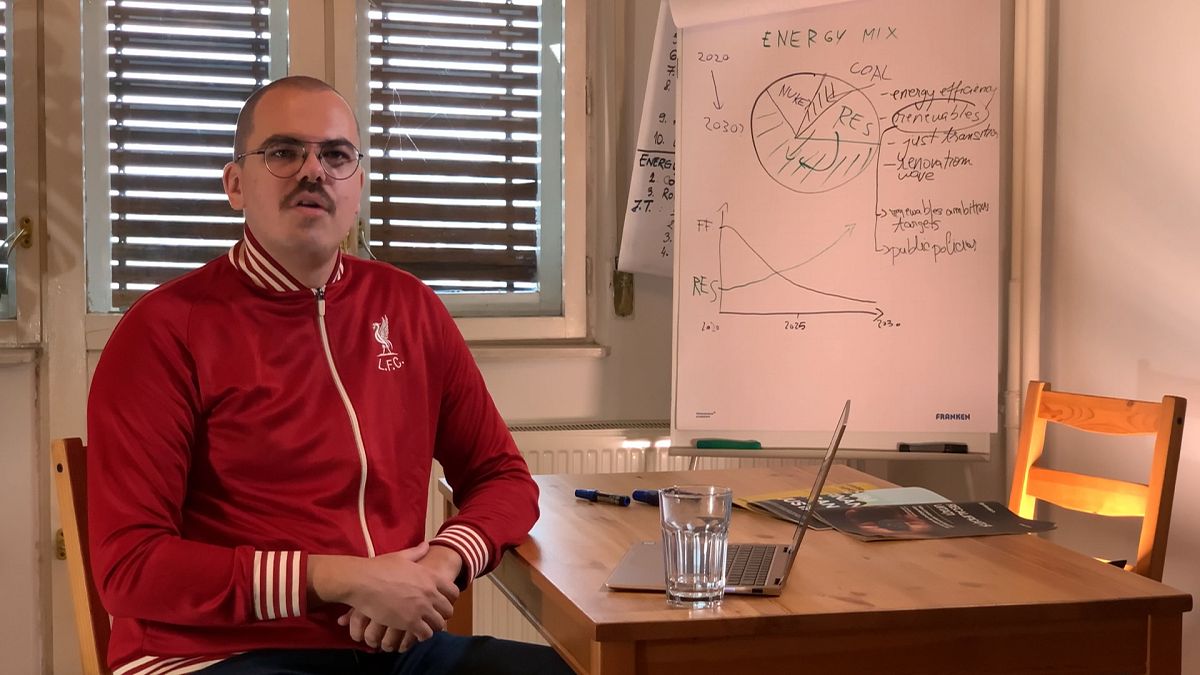Romania's current energy mix is expensive, unenvironmental and in danger of taking another unsustainable wrong term by investing in natural gas - that's the warning from Bankwatch Romania, who are highly critical of the govermment's current strategy.
The non-profit organisation Bankwatch Romania is insisting that the country needs to do better in mnodernising its energy mix, which is currently expensive and not environmentally sound.
The organisation's Just Transition coordinator Alexandru Mustață is unsatsified with the government's Energy & Climate Plan, which he considers unambitious and unsustainable:
"Romania could easily phase out coal by 2030. We are using as an excuse (the fact that) not all countries in the EU have pledged to phase it out until 2030, but there are (actually) only a few left: six EU countries don’t have a policy yet (to phase out coal) and for Romania, it would be much easier compared to them: we don’t have a high reliance on coal (such as Poland for example).
"Romania has about 20% of our energy mix relying on coal, the rest is hydro, nuclear, natural gas - and of course, we have a huge potential for renewables."
Euronews: Natural gas – is this a good choice to manage the transition away from coal?
"No. Spending even one Euro from public funds on natural gas is a mistake. Natural gas needs to be phased out before 2040, in order to meet our climate goals. If you invest in gas today, this will be money you regret ten years later, if you will think about how to replace it.
"Instead, we should invest in renewables, in energy efficiency and we should try to make our energy system as smart as possible, so we would not have any reliance on fossil fuels in ten or 20 years from now.
When Romania published the first National Energy and Climate Plan, you spoke up, very straightforwardly, saying: that’s unambitious. Why?
"Romania's National and Energy and Climate Plan is unambitious because it is still relying on coal in 2030, which is a huge mistake, because all the coal units functioning today are unprofitable. It’s hard to imagine how they will be functioning in 2025, not to mention 2030."
"Furthermore, it would be possible to phase out coal (by) 2030, we can invest in renewables, we can increase energy efficiency and we can do it in a way that does not affect people that are now working in the fossil fuel industry.:
Euronews: Regarding coal digging in Jiu Valley, are are you opposing coal-burning for energy use?
"First of all, the coal from Jiu Valley is very expensive, mining is very expensive. The equipment is dated, its 30 years old and also there have been a lot of accidents because there was no modernisation in the mines in the past
"Second of all, because this 'modernised' coal power plant in the Jiu Valley is still very polluting. It is one of the most polluting power plants in the country. And despite the fact that is was modernised, it is still not efficient in terms of costs.
"The company operating these powerplants has debts of close to €1 billion. It's insane. €400 million re owed on ETS allowances alone. For the past 4 years they have not paid for the pollution they have been producing. It is a mystery how this company is still functioning today cause of the debt it has accumulated over time.
Euronews: Some researchers in the Jiu Valley, such as the president of the university there, push for 'green coal' solutions, meaning so-called 'unconventional coal mining' including coal liquification and coal gasification methods. Could this be a solution?
"There is no such thing as 'green coal'. The technologies to make the coal industry less polluting are extremely expensive. And if you want to spend money on carbon capturing and storage systems, you have to spend billions of euros and you will end up with a financial mammoth which will not be able to be profitable ever.
"Furthermore, other techniques such as coal gasification do not solve the problem of CO2 emissions. You have (less CO2), but you still have too much to reach the climate goals.
"The people in the Jiu Valley have seen the coal mining and energy company going down from 50,000 employees in the 1990s to 3,000 today. In a region with 150,000 inhabitants, people are aware that they cannot rely on that industry any more.
"In terms of dates for phasing out, the problem is created by the central government, because Romania is one of the few countries which did not establish a coal phase-out date.
"The closure of all remaining coal mines should definitely be before 2030, but from an economic point of view, the mining company cannot even survive that long - because state aid is illegal for coal in the European Union."
Why is the transition taking so much time?
"The reason why the transition is going slowly in Europe is again the mixture of what we are seeing in Poland, in Romania, in Bulgaria and elsewhere, of powerful energy producers in good relations with powerful state actors – and of course those state actors defend the interest of big corporate players and those are evoking the need to defend the thousands of jobs they are creating.
"These jobs exist, they are important – but there are alternatives to them. Not overnight, not always on the same level of pay for everybody involved – but if you have a strategy which takes five years, ten years, then you will find a solution for everybody."


